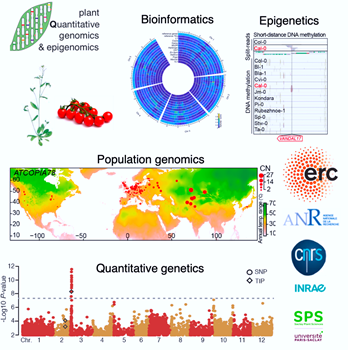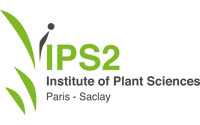A new team at IPS2
The new team headed by Leandro Quadrana will join the Developmental Genomics and Genetics (DGG) department to investigate the contribution of genomic and epigenomic variation to plant diversity. What makes each individual unique? How is diversity created and maintained within species? Can DNA change in response to the environment? Does the potential for adaptation evolve? These are fundamental questions in biology that remain open and have inspired multiple generations of researchers, including my own. In the Plant Quantitative Genomics and Epigenomics laboratory (Q-Lab) we investigate how new genetic and epigenetic variation are brought about and contribute to heritable phenotypic changes. The advent of high-throughput sequencing technologies allows us to read the entire genome of thousands of individuals and identify what makes each genome unique. It is now clear that the most variable part of genomes involves transposable elements, which are DNA sequences that can transpose from one place in the genome to another. Our current research aims to elucidate what makes them transpose in the first place, as well as their contribution to the evolution of species. In particular, we explore the potential role of transposable elements-induced mutations in the rapid adaptation of populations to drastic environmental changes, such as ongoing climate change, as well as in the diversification of crops. To this end we use molecular, genetic, and computational approaches to characterize large populations of wild-type plants, as well as plants carrying specific genetic or epigenetic perturbations.

The Q-Lab
08 December 2021
